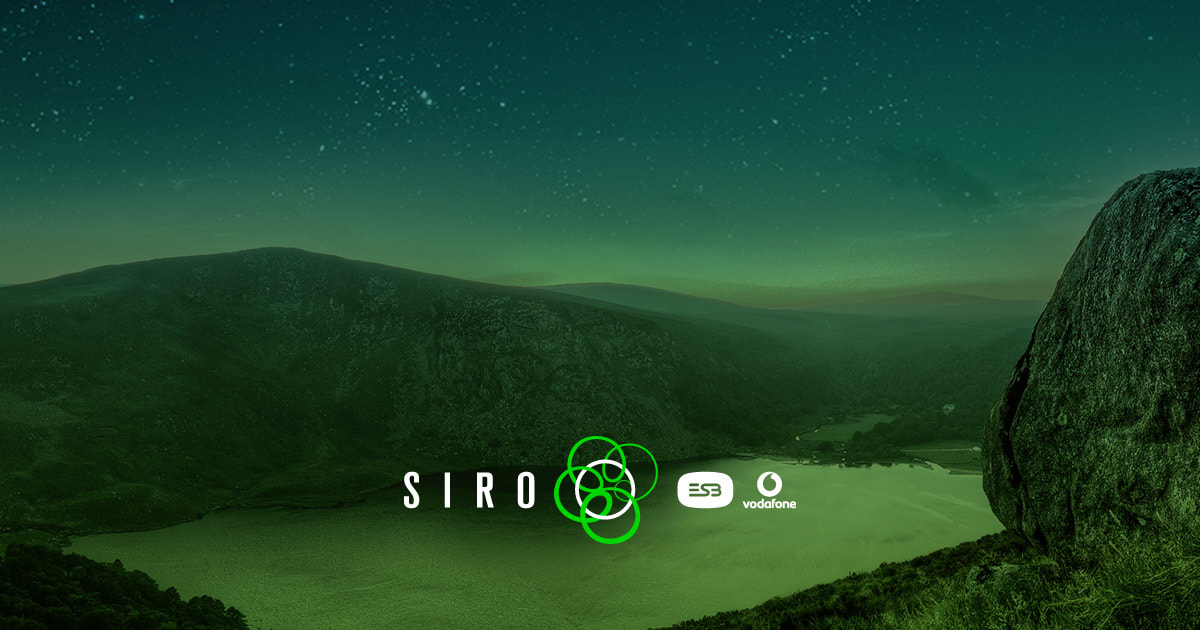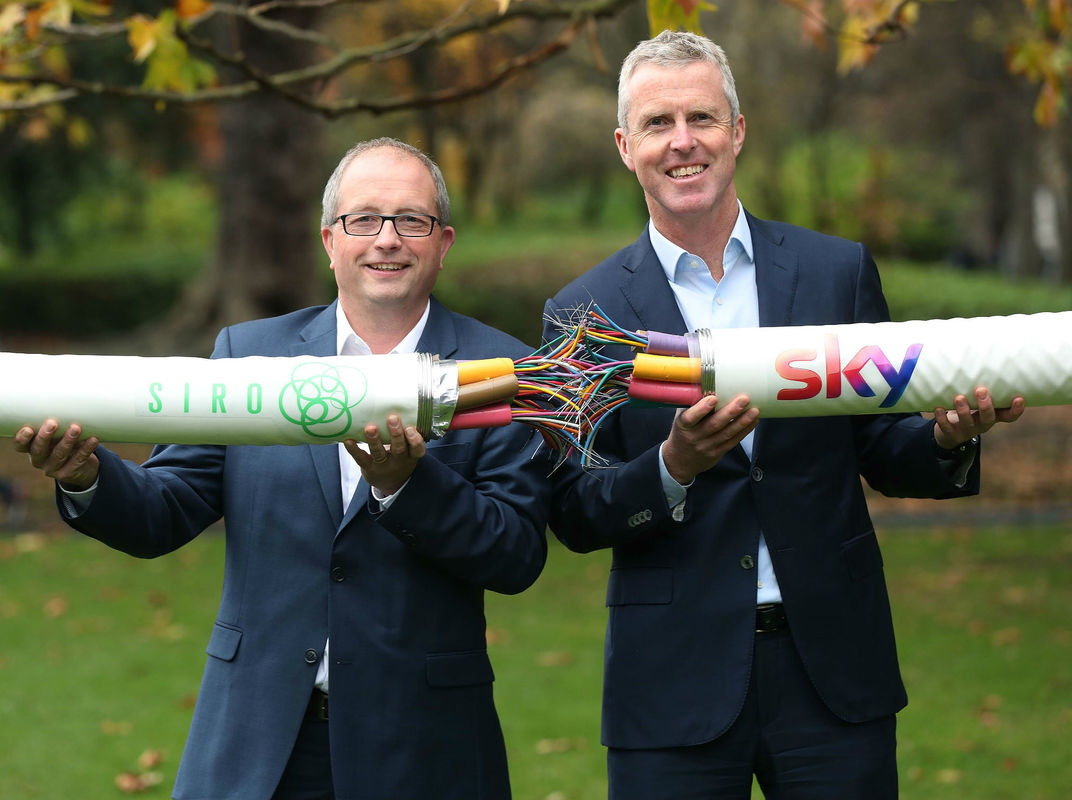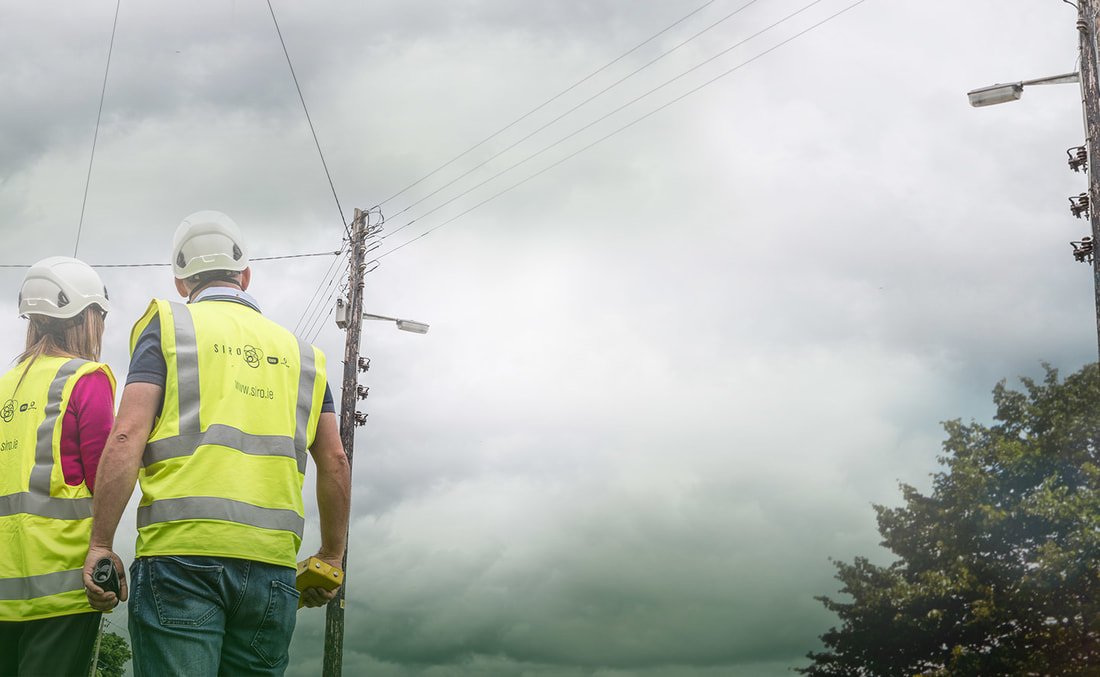How SIRO is Revolutionising Ireland
A peak into the impact SIRO's 100% fibre-optic network is having on Ireland.
Credit: SIRO
SIRO, a joint venture between Vodafone and the ESB, is revolutionising how we experience the Internet in Ireland. The company is enabling new experiences once looked upon as dreams. Rural villages and towns such as Skibbereen in West Cork, once viewed as forgotten in the arms race for technological advancement, now enjoy world-class connectivity. SIRO has broken down barriers and touched everyone in the communities where it has been deployed.
Set up in 2015, SIRO has made quite the impact in Ireland, delivering a 100% fibre-optic network to homes and businesses. A network powered by light, as the company likes to tout. Gigabit broadband speeds are now a reality in Ireland thanks to SIRO. The days of lacklustre broadband are well and truly over for people in the communities in which SIRO operates.
Ireland, a country with such ambitions for its flourishing tech industry, needs reliable internet more than ever. Internet that extends beyond the city of Dublin, Internet that enhances people's lives right across the country. Not every single business is located in the capital, SIRO has recognised this.
With a constant slew of broken promises from communications ministers only growing as the days fly by, someone needs to step up to the mark and deliver real change in Ireland, for the Irish people. Thankfully, people are doing exactly that, people are working tirelessly to create a connected Ireland. SIRO is at the forefront of this effort, taking an axe to the urban/rural divide once and for all.
Set up in 2015, SIRO has made quite the impact in Ireland, delivering a 100% fibre-optic network to homes and businesses. A network powered by light, as the company likes to tout. Gigabit broadband speeds are now a reality in Ireland thanks to SIRO. The days of lacklustre broadband are well and truly over for people in the communities in which SIRO operates.
Ireland, a country with such ambitions for its flourishing tech industry, needs reliable internet more than ever. Internet that extends beyond the city of Dublin, Internet that enhances people's lives right across the country. Not every single business is located in the capital, SIRO has recognised this.
With a constant slew of broken promises from communications ministers only growing as the days fly by, someone needs to step up to the mark and deliver real change in Ireland, for the Irish people. Thankfully, people are doing exactly that, people are working tirelessly to create a connected Ireland. SIRO is at the forefront of this effort, taking an axe to the urban/rural divide once and for all.
Credit: SIRO
A Gigantic Leap Forward:
SIRO's method of delivering broadband to homes and businesses in Ireland is very unique. The company is cleverly taking advantage of the scale of ESB's existing electricity network, running fibre cables alongside electricity cables. From a cost standpoint, this is a major advancement. Eir, who's monopoly in the broadband market has had detrimental ramifications for Irish consumers, provides broadband on separate poles and ducts than the electricity network. For Eir, it is more expensive and difficult to roll out Fibre-To-The-Home(FTTH).
The majority of connections in Ireland today are Fibre-To-The-Cabinet(FTTC). Such connections rely on copper between the home and cabinet, achieving maximum speeds of 100Mbps. It is Eir who owns the vast majority of FTTC networks in Ireland, companies such as Sky and Vodafone pay Eir a pretty penny to resell this broadband. In the coming years, 100Mbps speeds will be inadequate to facilitate our future Internet needs.
SIRO's 100% fibre network enables speeds of up to 1000Mbps, so fast that virtually no one service is able to take advantage of the speed yet. If you have a gigabit fibre connection, rest assured that you'll be future-proofed for quite some time. The number of places that have such a fast connection is limited, even on a global basis. It's unprecedented that many rural villages and towns on a small island in the Atlantic Ocean have access to world-class speeds. SIRO has allowed Ireland to leapfrog our neighbours in Europe, with more FTTH connections when taking population into account.
What does this fibre network mean, it means you can do whatever the heck you want with your broadband. Stream dozens of 4K Netflix movies simultaneously, enjoy online gaming like never before or upload videos to the cloud faster than one could imagine. It's truly revolutionary and the use cases will only continue to grow over time as technology advances. SIRO's FTTH network covers over 160,000 premises in Ireland, connecting more than thirty towns and villages to world-class speeds.
As Vodafone and ESB continue to expand the reach of SIRO's network, the economic opportunities will grow for businesses throughout Ireland. With access to these speeds, a business can do things they simply couldn't before SIRO connected them. The connectivity is crucial for tech companies, which occupy an ever-increasing portion of our economy in Ireland.
Others have been quick to jump on the SIRO bandwagon, with Sky being of one of the companies to recognise its potential. Many companies have signed deals with SIRO to access its fibre network and resell the gigabit broadband as their own product.
And guess what, SIRO does not charge providers anywhere near the prices that Eir does. This fact is critical because it means SIRO is paving the way for less expensive broadband in Ireland. Eir's rapacious behaviour and its insistence to abuse its power as the incumbent operator has made broadband in Ireland more expensive than almost everywhere else in Europe. Eir has effectively stifled innovation in the broadband market and killed competition, SIRO can change this.
The majority of connections in Ireland today are Fibre-To-The-Cabinet(FTTC). Such connections rely on copper between the home and cabinet, achieving maximum speeds of 100Mbps. It is Eir who owns the vast majority of FTTC networks in Ireland, companies such as Sky and Vodafone pay Eir a pretty penny to resell this broadband. In the coming years, 100Mbps speeds will be inadequate to facilitate our future Internet needs.
SIRO's 100% fibre network enables speeds of up to 1000Mbps, so fast that virtually no one service is able to take advantage of the speed yet. If you have a gigabit fibre connection, rest assured that you'll be future-proofed for quite some time. The number of places that have such a fast connection is limited, even on a global basis. It's unprecedented that many rural villages and towns on a small island in the Atlantic Ocean have access to world-class speeds. SIRO has allowed Ireland to leapfrog our neighbours in Europe, with more FTTH connections when taking population into account.
What does this fibre network mean, it means you can do whatever the heck you want with your broadband. Stream dozens of 4K Netflix movies simultaneously, enjoy online gaming like never before or upload videos to the cloud faster than one could imagine. It's truly revolutionary and the use cases will only continue to grow over time as technology advances. SIRO's FTTH network covers over 160,000 premises in Ireland, connecting more than thirty towns and villages to world-class speeds.
As Vodafone and ESB continue to expand the reach of SIRO's network, the economic opportunities will grow for businesses throughout Ireland. With access to these speeds, a business can do things they simply couldn't before SIRO connected them. The connectivity is crucial for tech companies, which occupy an ever-increasing portion of our economy in Ireland.
Others have been quick to jump on the SIRO bandwagon, with Sky being of one of the companies to recognise its potential. Many companies have signed deals with SIRO to access its fibre network and resell the gigabit broadband as their own product.
And guess what, SIRO does not charge providers anywhere near the prices that Eir does. This fact is critical because it means SIRO is paving the way for less expensive broadband in Ireland. Eir's rapacious behaviour and its insistence to abuse its power as the incumbent operator has made broadband in Ireland more expensive than almost everywhere else in Europe. Eir has effectively stifled innovation in the broadband market and killed competition, SIRO can change this.
Credit: SIRO
A National Broadband Plan Fraught with Problems
The National Broadband Plan, which has featured very prominently in the news over the past number of years, pledges to bring high speed broadband to everyone in Ireland. Unfortunately, the process of actually rolling out the network has yet to start. It's been fraught with problems from the get-go.
The NBP is now expected to begin rolling out later this year, or so we're told. If it is rolled out as promised, Ireland will be one of the most connected societies in the world and it will have tremendously positive impacts on our economy. Unfortunately, the plan has been somewhat jeopardised by Eir who cunningly managed to strike a deal with the government and select 300,000 of the most financially economical buildings to connect.
What came next plunged the process into great uncertainty, SIRO withdrew following Eir's deal with the government as it believed it was no longer financially viable to connect the remaining 542,000 buildings. Then, Eir was taken over by a French billionaire (Xavier Niel) and ran away from the process too, content with the deal that it made with the government. Great controversy remains about this deal which Eir made, many believe it destroyed the plan and further expanded Eir's monopoly in Ireland.
The withdrawal of SIRO remains a major blow for the process. The remaining contender, Enet, will now be forced to use Eir's infrastructure, and given Eir's history of charging providers exorbitant rates to access its network, the plan will become more expensive if ComReg doesn't step in. SIRO's method of using ESB's network would have mitigated these issues. It's very clear that Eir's monopoly in Ireland needs to end and fast.
The NBP is now expected to begin rolling out later this year, or so we're told. If it is rolled out as promised, Ireland will be one of the most connected societies in the world and it will have tremendously positive impacts on our economy. Unfortunately, the plan has been somewhat jeopardised by Eir who cunningly managed to strike a deal with the government and select 300,000 of the most financially economical buildings to connect.
What came next plunged the process into great uncertainty, SIRO withdrew following Eir's deal with the government as it believed it was no longer financially viable to connect the remaining 542,000 buildings. Then, Eir was taken over by a French billionaire (Xavier Niel) and ran away from the process too, content with the deal that it made with the government. Great controversy remains about this deal which Eir made, many believe it destroyed the plan and further expanded Eir's monopoly in Ireland.
The withdrawal of SIRO remains a major blow for the process. The remaining contender, Enet, will now be forced to use Eir's infrastructure, and given Eir's history of charging providers exorbitant rates to access its network, the plan will become more expensive if ComReg doesn't step in. SIRO's method of using ESB's network would have mitigated these issues. It's very clear that Eir's monopoly in Ireland needs to end and fast.
Siro's Growth is in the interests of the Irish People
SIRO is truly revolutionising Ireland. It's revolutionising how we interact and experience the internet, it's driving down prices, and paving the way towards a more connected society in Ireland. But most important of all, SIRO is destroying the stigma associated with rural broadband. Finally, a company is demonstrating that rural areas deserve just as good broadband as their urban counterparts.
The positive effects of SIRO can be seen with the development of "Gigabit Hubs" throughout Ireland. The first of these was set up in Skibbereen in Cork, the Ludgate Hub. With these "Gigabit Hubs", Vodafone and SIRO envision world-class connectivity promoting the growth of businesses and startups throughout Ireland. These hubs will spur economic growth and provide jobs for future generations. The power of reliable broadband extends beyond the home, it touches every aspect of our modern lives.
The positive effects of SIRO can be seen with the development of "Gigabit Hubs" throughout Ireland. The first of these was set up in Skibbereen in Cork, the Ludgate Hub. With these "Gigabit Hubs", Vodafone and SIRO envision world-class connectivity promoting the growth of businesses and startups throughout Ireland. These hubs will spur economic growth and provide jobs for future generations. The power of reliable broadband extends beyond the home, it touches every aspect of our modern lives.
Credit: SIRO
"Vodafone strongly believes that wherever you live or work in Ireland – from the biggest city to the smallest village or beyond, you should be entitled to top quality high-speed internet access.
This is why Vodafone is determined to play its part in creating a ‘gigabit society’ in Ireland. In simple terms, we want to bridge the urban/rural digital divide by ensuring all citizens have equal access to 1-gigabit broadband speeds through 100% fibre optic broadband.
This means investing in and empowering local communities through connected technologies. It also means continuously investing in our network and delivering innovative, converged solutions that suit our customers changing needs and demands."
Anne O'Leary, CEO, Vodafone Ireland.





